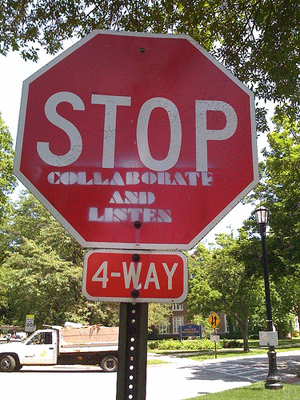
Photo used under a Creatives Commons license by Flickr user <a href="http://www.flickr.com/photos/midgetbusdriver/3662945409/" target="_blank">Erica Reid</a>
On Friday I highlighted the public’s chronic ambivalence about the issue of the filibuster. After 12 months of filibuster-powered obstruction, only a quarter of Americans know much about it, which is roughly how things played out in 2005 as well, when Republicans unsuccessfully pursued the “nuclear option” to end the procedure. Today I talked to Pew’s Andrew Kohut to get his explanation of why the filibuster might not be the winning argument some Democrats seem to think it is.
The takeaway is this: While progressives bind the filibuster to specific issues like health care (for the GOP in 2005 it was abortion), the public by and large approaches it from a much different perspective. “I think what happens in those situations is that the public seems to think that they’re somehow losing the check of one party against the other,” Kohut told me. “I don’t want to exaggerate this point but people take comfort in the fact that Republicans are looking over the shoulder of the Democrats and vice versa. Changing the rules to deal with [gridlock] I think raises some anxiety.” (No kidding: here’s what we wrote back in 2005).
As for turning the issue into a populist barnburner, Kohut’s prognosis was less than optimistic: “I don’t have a crystal ball on this one,” he said. “But when you have only 26 percent of the public that knows how many votes it takes to break a filibuster, you’ve got a lot of ground to cover.”
Follow Tim Murphy on Twitter.













